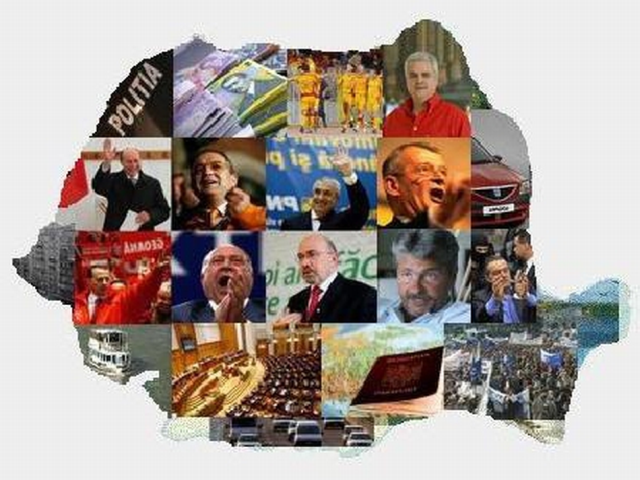The Week in Review, December 4-10
A review of the headline-grabbing events.
Warning: Trying to access array offset on null in /home/web/rri.ro/public/wp-content/themes/rri/template-parts/content.php on line 53

Warning: Trying to access array offset on null in /home/web/rri.ro/public/wp-content/themes/rri/template-parts/content.php on line 98
Corina Cristea,
11.12.2016, 12:40
Saturday is a day of reflection in the run-up to the December 11th parliamentary elections in Romania
Saturday is a day of reflection in Romania, in the run-up to the December 11th parliamentary elections. There are 6,500 people registered to compete for one of the 466 parliament seats, 136 in the Senate and 312 in the Chamber of Deputies. Adding to that there are 18 seats for the representatives of the national minorities, except for the Hungarian ones, whose representation is secured ex-officio. There are 43 constituencies: 41 counties, Bucharest and the Diaspora.
The ballot will unfold in keeping with the new election legislation, which brings back, after an 8-year break, the list voting system. For a month, the candidates presented their political agendas and electoral offers by means of posters, rallies and meetings with the voters. December 8th was the deadline for submitting to the Electoral Bureau the envelopes containing the forms need for postal voting, which is a first in the Romanian election history. During Sundays elections, the IT monitoring system will automatically report to the police any record of multiple voting. The Interior Ministry has announced that after all the polls are closed, the stamps will be sealed. All IT operations will be recorded and stored, the ballot counting process will be video recorded, and the minutes will be filled in electronically and published automatically.
The Romanian Foreign Minister participated in the NATO meeting in Brussels
The new deep cooperation between NATO and the EU must also be applied to the neighborhood, in keeping with each organizations capacity, the Romanian Foreign Minister Lazar Comanescu said at the NATO foreign ministers meeting in Brussels. Referring to Russia, the Romanian official said that, although opinions may slightly differ, all the allies are in favour of a combination of deterrence measures and open dialogue. Lazar Comanescu: “Participating and cooperating with Russia for settling issues such as the crisis in Syria must not trigger in turn the risk of diminishing the attention that needs to be paid to the eastern neighborhood.
Lazar Comanescu also reiterated Bucharests unequivocal support for Ukraines independence and territorial integrity, as well as for boosting cooperation between Kiev authorities and NATO. The participants also reviewed the situation in Afghanistan, and, against that background, the Romanian Foreign Minister presented Romanias significant contribution to NATOs commitments to that country.
At the last NATO meeting this year, the participating foreign ministers also endorsed a package of 42 measures aimed at deepening cooperation with the EU in seven areas, including countering hybrid and cyber threats, working together in maritime operations and capability development.
A week has been dedicated to the fight against border corruption
Romania celebrated International Anti-Corruption Day on 9 December, organizing Fighting Border Corruption Week, in addition to applying enhanced measures to stop tax evasion. Between December 5th and 9th, the National Anti-Corruption Directorate worked to encourage responsible behavior and eliminating the risk of corruption, as well as raising awareness among citizens transiting the border with Ukraine and the Republic of Moldova. Citizens of the three states and tourists that crossed the border at Sighet, Halmeu, Galati, Oancea, Albita, Siret and the international airport in Bucharest, Otopeni, got from representatives of the NAD and the border police information materials, alongside recommendations to act with integrity and be proactive in signaling acts of corruption. In parallel with measures against corruption at the border, in December tax inspectors are running a campaign to check the books of a large number of companies.
A strategy is put in place to motivate physicians to stay and work in Romania
This week, a strategy was introduced by Romanian Health Minister Vlad Voiculescu. It is aimed at motivating physicians to stay and work in the country. Since 2007, when Romania joined the European Union, over 43,000 experts have applied for work abroad, which is the reason the four-year plan has been put in place.
Minister Voiculescu: “Hospitals are facing a major staff shortage, and entire towns and villages don’t have a family physician. Motivating medical staff to stay and practice in Romania also refers to applying wage policies based on performance and results, granting incentives for practicing in isolated areas, as well as other financial incentives.
Minister Voiculescu added that a few steps have already been taken to provide better pay in healthcare, such as better evaluations of hospital managers, while competitions for positions are more transparent by having all openings published on the government’s online platform. The plan, issued by the Health Ministry, with help from the Presidency and the World Health Organization, contains measures to provide better pay in healthcare, and better opportunities for career development.




























